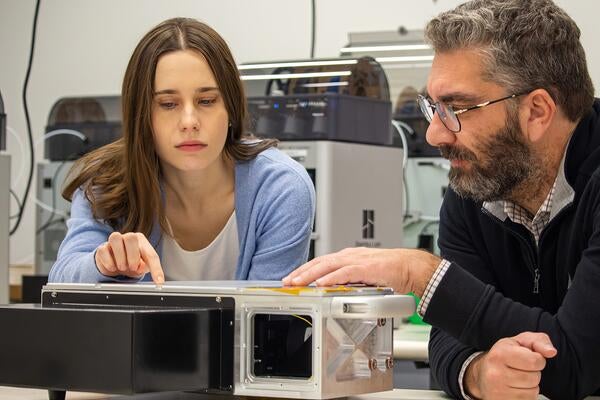
Remote classes affected students and teachers differently worldwide
Researchers used data science to examine experiences in developed and developing countries

Researchers used data science to examine experiences in developed and developing countries
By Media RelationsAs schools moved to a mode of emergency response teaching (ERT) at the beginning of the COVID-19 pandemic, there were distinct differences in the effect it had on students and teachers whether they were in developed or developing countries, a new study shows.
Using data science, researchers at the University of Waterloo analyzed the impact the shift to ERT in early 2020 had on both learning outcomes for students and teaching objectives for instructors. They collected data from developing countries, including Bangladesh, Malaysia and China, and developed countries, including the U.S., Canada, Germany and Spain.
The research team generated the data for their study through a combination of surveys and interviews with students and teachers. They then used data science methods and statistical analysis to sort through the massive amounts of information and draw conclusions.
“There were distinct differences in developed and developing countries,” said Enamul Haque, a PhD student in computer science at Waterloo and lead author of the study. “Students and teachers in developing countries experienced difficulties linked with infrastructure issues, such as lack of internet connectivity in some rural areas. This was also an issue in some rural areas in developed countries, but not to the same extent.”
The researchers also found that students in developing countries faced related difficulties around financial constraints. Because there was no reliable broadband internet connectivity, some students had to attend classes on their smartphones and use large amounts of data, which could be expensive.
In the developed countries they studied, students faced more difficulties related to distractions or to not having a dedicated space for their online learning inside their homes. For the teachers, they found that they consistently experienced a far higher workload when preparing and delivering classes remotely. In addition, for many teachers, it was their first time using a tech-only approach, which presented unique challenges, depending on their experience or whether they needed labs for hands-on teaching.
“One important take-away is that planning and preparation for moving to ERT are vital, and educational institutions that had plans in place did much better,” Haque said. “The experience of ERT can show cracks and weaknesses in educational systems where improvements can be made to increase resiliency and better support students.”
The new research from Haque and co-authors Tanvir Mahmud, Shahana Shultana, Iqbal H. Sarker and Md Nour Hossain, “A Tale of Two Zones: Pandemic ERT Evaluation,” was recently published as a chapter in the book Smart and Sustainable Technology for Resilient Cities and Communities.

A car’s exhaust pipe emits black carbon. This sooty form of pollution alters the “light environment” beneath the snow, affecting plant growth. (Kmatija/Getty Images)
Read more
Research into light and snow interactions provides new insights into how pollution can affect vegetation growth and impact ecosystems

Read more
Phantom Photonics’ quantum remote sensing technology offers precision for industries operating in extreme environments

Read more
How machine learning empowers collaboration between computer science, math and medical research
The University of Waterloo acknowledges that much of our work takes place on the traditional territory of the Neutral, Anishinaabeg, and Haudenosaunee peoples. Our main campus is situated on the Haldimand Tract, the land granted to the Six Nations that includes six miles on each side of the Grand River. Our active work toward reconciliation takes place across our campuses through research, learning, teaching, and community building, and is co-ordinated within the Office of Indigenous Relations.